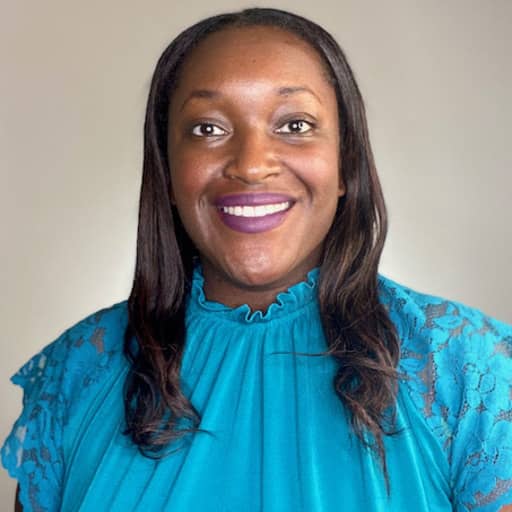How to Become a CPA in 6 Steps
Earning CPA licensure can be a challenging process. Besides meeting the educational requirements, you have to get a specific amount of work experience and pass an infamously rigorous, four-part exam — along with other state requirements.
However, the process to become a CPA can be worth it, since these professionals are in high demand. The CPA Journal reported last year that the accounting field was in “crisis” amid a decline in accountants.
This is due to the American Institute of Certified Public Accountants (AICPA) reporting a more than 30% drop in the number of candidates sitting for the CPA exam between 2016 and 2021.
With fewer people pursuing this credential, now could be a great time to enter the field. Read on to learn more about the steps you need to take to become a CPA.
What Is A CPA?
A Certified Public Accountant (CPA) isn’t a job title, but rather a professional license that qualifies accountants to provide the public with certain services, such as audits, tax preparation, and financial consulting.
An accountant with a CPA can have a wide range of job titles, from traditional accountant to financial analyst. And while you don’t need a CPA to qualify for some of these roles, many employers look for this certification as a means of ensuring their new hires have relevant skills. Plus, there are also certain services that CPAs can do that non-licensed accountants can’t.
For example, CPAs can conduct external and service organizational control (SOC) audits, prepare and certify mandatory SEC financial statements, and represent clients in state and IRS audits and other proceedings.
With this in mind, think of having a CPA as a way of proving your expertise and expanding your opportunities in the accounting field.
Steps to Become a CPA
The requirements to become a CPA can slightly vary by state, but they are generally similar. You’ll need a certain amount of college credits and work experience. You’ll also have to pass the Uniform CPA Exam.
If you’re interested in going through the process, here are some general steps you need to take:
Step 1: Earn a Bachelor’s Degree
The first step toward becoming a CPA is usually earning a bachelor’s degree in accounting.
Most states require that you undergo around 150 college credit hours to become a CPA, and a bachelor’s degree gets you closer to that goal. However, a bachelor’s degree alone helps you complete around 120 credits, which means you’ll need additional coursework to qualify for CPA licensure.
A master’s of accounting degree is one way to complete those additional coursework requirements. You can also do a double major or take additional elective courses during your undergraduate studies.
You should also keep in mind that the number of business and accounting credit hours you’ll need can vary by state:
- In Texas, you’ll need to take at least 27 semester hours of upper-level accounting coursework, including two hours focused on tax research and analysis, as well as a three semester hours on ethics.
- In California, you’ll need 24 semester hours in both accounting and business-related subjects, 20 semester hours in accounting-specific studies, and 10 semester hours of ethics.
Note that accounting programs are generally tailored to CPA requirements within their respective states, so it’s typically a good idea to enroll in a program offered within the state you want to practice.
Step 2: Gain Relevant Work Experience
Most states require between one and two years of work experience to qualify for CPA licensure.
Florida, for instance, requires one year — or a minimum of 2,000 hours — of relevant work experience “involving the use of accounting, attest, compilation, management advisory, financial advisory, tax, or consulting skills, all of which must be verified by a certified public accountant who is licensed by a state or territory of the United States.”
Employment of accountants and auditors is projected to grow faster than average over the next decade, according to the Bureau of Labor Statistics (BLS). And you only need a bachelor’s degree to qualify for these occupations.
If you’re a recent college graduate, look for entry-level junior accountant and auditor positions. These likely won’t require a CPA licensure and will help you get the work experience you need to meet your state’s requirements.
According to Colin Smith, certified CPA and financial reporting consultant, “any serious accounting or finance job can prepare you for earning your CPA license, especially ones that allow you to touch several different accounting areas in a short amount of time.”
Step 3: Pass the CPA Exam
State requirements for taking the CPA exam vary, but you’ll generally need a bachelor’s degree and 120 semester credit hours.
The CPA exam takes about 16 hours in total, with each of its four sections lasting four hours. However, you don’t take all the sections at once — they’re scheduled on different days, one at a time. Once you pass your first section, you’ll have a set timeframe to pass the remaining three.
It typically takes about 18 months overall, but recent NASBA changes mean states are considering changing that window to up to 30 months.
The AICPA, which administers the exam, offers CPA Exam Blueprints to help you familiarize you with the test. You can find up-to-date information about each section here.
Smith recommends taking one exam at a time and dedicating two months of study for each exam. “When you do study, prioritize taking practice questions rather than just reading a textbook or listening to lectures,” he says.
If you don’t pass the CPA Exam on your first try, you’re not alone. Several exam sections have a less than 50% pass rate. Luckily, the National Association of State Boards of Accountancy (NASBA) notes that you can take the computer-based exam as many times as you want, and the only limitation is the time it takes to re-register.
Step 4: Complete Additional State Requirements
So you’ve passed the exam, met state education requirements, and gotten the work experience you need to qualify for licensure. What’s next?
Some states have an additional set of requirements for you to qualify for CPA licensure, such as state-specific ethics classes.
Ohio, for example, requires a Professional Standards and Responsibilities (PSR) course for initial licensure, return to practice, and disciplinary complaints. Virginia also requires licensees to take an ethics course approved by the state’s Board of Accountancy.
Step 5: Apply for CPA Licensure
Once you meet the above mentioned steps, you’re ready to apply for licensure in your state. Most states require these during their application procedure
- Passing the CPA exam
- Verified work experience (often supervised by a licensed CPA)
- College transcripts showing you meet educational requirements
- Criminal background check
Meeting your state’s requirements is key here, so it’s critical that you check with your state Board of Accounting before applying.
Step 6: Maintain Certification with Continuing Education
After earning your CPA, you’ll have to complete some continuing education requirements to maintain it.
CPA licenses generally need to be renewed every three years and require various levels of continuing professional education, or CPE. In Ohio, for example, you’ll need 120 hours of CPE every three years.
Courses from professional societies and professional exams can help you fulfill this requirement. You can consider instructing a course as well, as this also counts towards your continuing education hours.
Coling notes that accounting firms sometimes even arrange for in-house CPE for their employees, and there are many affordable CPE providers which offer courses across various niches.
He also points out that the Big 4 accounting firms — Deloitte, Ernst & Young (EY), PricewaterhouseCoopers (PwC), and Klynveld Peat Marwick Goerdeler (KPMG) — sometimes offer free, CPE-eligible webinars.
How Long Does It Take to Become a CPA?
It can take upwards of six years to become a CPA. This timeline includes completing a four-year undergraduate degree, a ten-month master’s in accounting, a year of work experience, and passing the CPA Exam, along with meeting all licensure requirements.
However, there’s no hard and fast deadline for becoming a CPA. This time frame can change depending on if you pursue a master’s degree or not, how long it takes you to pass the exam, and other factors.
How Much Does a CPA Make?
As a CPA, you can work in several accounting and auditing roles, which have a median annual salary of $79,880 per hour as of May 2023, according to the BLS.
Beyond how much you can make, the value of a CPA license lies in the doors it can open for you. Accounting firms generally prefer that employees have a CPA before heading into managerial roles, so this license can both boost your job opportunities and earning potential.
Is Becoming a CPA Right for You?
Becoming a CPA isn’t a requirement to be an accountant, but obtaining this license is a great way to stand out to employers as an expert and trusted advisor.
That’s particularly important nowadays, as AI is reshaping the accounting profession. Experts previously told BestColleges that AI is being used to emphasize accountants’ role as expert advisors while cutting down on some of their tedious work, aiming to boost efficiency.
Additionally, passing the CPA exam can help you qualify for managerial positions in the long run. “Many public accounting firms have a policy to not promote staff to the Senior staff or Managerial levels until they have their CPA license, and many companies have similar preferences for supervisory and leadership positions,” says Smith.
Pros of Becoming a CPA
- Better job prospects: Companies often seek out candidates with a CPA license to guarantee they’re hiring qualified accountants.
- Job security: Accounting is considered to be a somewhat secure profession, since businesses need compliance and tax experts regardless of economic conditions.
Cons of Becoming a CPA
- Cost: The cost of the CPA exam, licensing fees, and prerequisite college courses can be expensive. Between the application fees and review courses, the cost can reach $4,000 or more depending on your state and how many times you take the exam.
- Time: With 150 hours of college credit required and state’s varying work experience requirements, becoming a CPA can be a lengthy endeavor.
Frequently Asked Questions About Becoming a CPA
A Certified Public Accountant (CPA) license is a state-awarded certification that verifies an accounting professional has met education and experience standards. Accounting firms and other employers often seek CPAs to ensure they’re hiring a qualified candidate.





